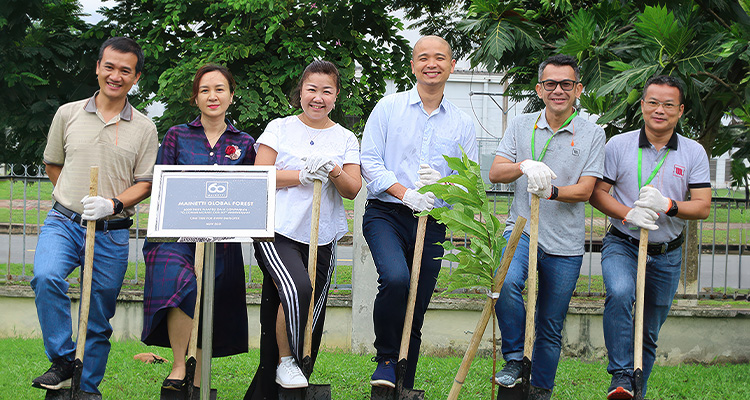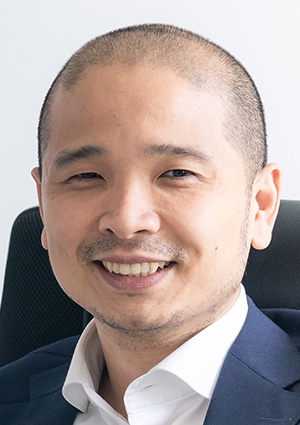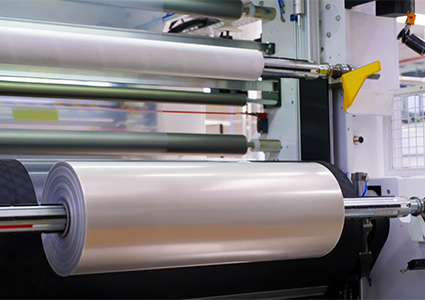
Phillips Pham, Chief People Officer at Mainetti, discusses the importance of prioritizing the mental and physical health of employees
First off, it would be great to get to know you a bit better. Could you tell me about your career history, and its evolution to your current role?
My name is Phillips Pham and I’m the Chief People Officer of Mainetti and the General Manager of Mainetti Vietnam. I’ve been at Mainetti for 18 years now, and have always been passionate about our culture, sustainability, and championing human-centered engagement. Outside Mainetti I mentor at the University of Economics Ho Chi Minh City and have co-authored Happy Organisation – a book that explores how businesses can integrate Gross National Happiness (GNH) principles to create thriving, purpose-driven workplaces where people and performance flourish together.

Tell me more about Mainetti and where your role fits in the business.
Mainetti produces innovative packaging products and sustainable solutions for the retail sector. The business itself was founded by the Mainetti brothers in 1961 and now operates in 90 locations across six continents. Though we have global production, all our work is backed by strong, local expertise. As such, we see ourselves as a global family, working toward a shared vision. In 2024, I became Mainetti’s global Chief People Officer, with the personal aim of proving that business can be a powerful force for good. In today’s world, employees seek workplaces that genuinely prioritize their wellbeing. We are committed to strengthening our four core values – respect, integrity, commitment, and collaboration – by fostering mutual respect, active listening, stakeholder appreciation, empathy, accountability, transparency, and ethical business practices. Together, we create an environment where people thrive and contribute meaningfully.
Elaborate on the link between employee wellbeing and organizational success.
While some firms see employee wellbeing as a means to drive business results, we see it as a core organizational goal – an end in and of itself. We think a lot about safe and secure work environments, skill development opportunities, as well as our responsibility to local communities and the planet. In February 2025, for example, Mainetti won a grant from lululemon’s Vendor Grant Program, in recognition of its commitment to initiatives that address the specific wellbeing needs of employees. We have been the proud recipients of this grant for two years in a row now. The first grant sponsored the development of Mainetti’s community garden, which supports environmental education in the community, while the second is being used to build out our Mainetti Academy. Through the Academy we seek to support employee development with 70 percent on-the-job training, 20 percent social learning, and ten percent formal education.
Can you tell us more about the wellness initiatives you have introduced, such as The Happy Mainetti program, and what is involved in those?
The Happy Mainetti program, launched in 2022, aims to prioritize the mental and physical health of our employees. The approach is underpinned by the GNH concept – a measure of economic and wellbeing progress, as an alternative to gross domestic product, which perfectly aligns with Mainetti’s ethos. The program incorporates three initiatives. First, we run an annual GNH survey to assess and respond to employee wellbeing; second, we provide training and practice sessions to support mindfulness, gratitude, and active listening; and finally, we encourage employee-led activities to boost positive action and engagement in our mission.
Tell me more about the main benefits that Mainetti is seeing from this strategy?
Thanks to our annual GNH surveys, we have clear insights into employee wellbeing, and we track our progress over time so that we can adjust our approach. I am proud to say that we have seen the Total Happiness Index increase from 78 percent in 2023 to 83 percent in 2024. In the Good Governance domain – a measure of employees’ trust in the company – metrics rose from 78 percent in 2023 to 81 percent in 2024. We have also seen greater participation in company-wide activities, such as sports days, team-building events, and CSR initiatives. For these reasons, employees seem to be happy staying with Mainetti, and employee turnover has reduced to just one percent per month.
Have you got any specific examples/case studies that demonstrate this in action?
I recently had an insightful conversation with one of our factory workers about a change in their production manager’s behavior. The worker shared that they noticed the manager listening attentively to the challenges faced on the shop floor. This simple yet powerful gesture encouraged more people to open up and collaborate in finding solutions together. When this story was relayed in our quarterly circle-sharing practice, the production manager in question pointed to Mainetti’s mindfulness practice as the reason for his newfound ability to see problems as an opportunity to grow. This story was inspiring, as mindfulness helped to improve the competence of employees and the quality of their relationships with their supervisor. It is evidence that we are on the right path, and positive change – while incremental – is indeed happening in every area of our business. 
What are the first steps for any employers looking to enhance employee wellbeing?
I would suggest a four-point approach. First, clearly define the long-term vision. The goal should always come back to staff, stakeholders, and responsible practices. The second is to lead by example. Directors and managers should take the time to really understand social-emotional learning and mindfulness. Thirdly, study several proven models. The GNH framework is just one means to holistically improve employee wellbeing. Lastly, start small and be willing to adapt as you go. Measure the impact of your actions and double down on the most successful.
What can employees do to be proactive in their own wellbeing?
Employees have a role to play by committing to support their personal wellbeing. Mainetti is a global family with a shared vision, so every stakeholder is equally important to us. It is key to maintain an open mind, be willing to continuously learn, practice mindfulness, and try to live in harmony with your surroundings and nature.
Looking ahead but more generally, with your expertise, do you think employee wellbeing will continue to increase in importance to employers and how do you envision that will manifest?
While there has been a regression in diversity, equity and inclusion policies from some companies lately, I believe this is not representative of the broader trend that aims to boost the general wellbeing of workers. Since the pandemic, wellbeing and happiness have rightly been identified as key motivators for employees – often in line with salary or benefits. People want meaningful work, to be part of organizations that genuinely care for them. We all do. I hope that in the mid-term, environmental, social, and governance (ESG) frameworks will further spotlight employee wellbeing as a critical KPI.
Are there any countries that are leading the way in this approach to use as examples of best practice? Any that need to catch up?
Many countries have led the way in this area. Some have even endorsed wellbeing as a constitutional paradigm – ensuring progressive values are at the core of governance. Examples include Bhutan, which pioneered the GNH model; Bolivia and Ecuador, both of which incorporated wellbeing into their constitutional principles; and Japan and Korea, which developed policies to support work-life balance.
If there was one critical message you’d like a reader to take from this piece, what would it be?
For thousands of years, the pursuit of happiness has been central to the human experience. Today, businesses have the power to contribute, helping employees and communities reach a state of harmony and equilibrium. We must keep in mind that happiness is not a destination – it is a journey that requires commitment, compassion, and courage.
Are there any other areas that you consider important and that you’d like to include?
I would like to thank you for the opportunity to highlight what we are doing for our people and culture at Mainetti. We believe that we are at the beginning of a great journey and there is plenty of work still to do. We hope to see more initiatives around the world that support employee wellbeing.